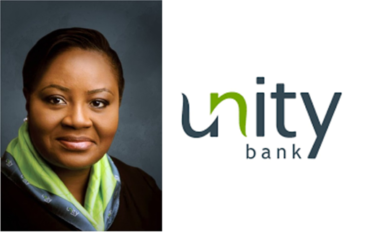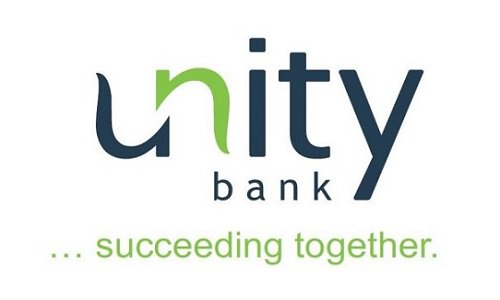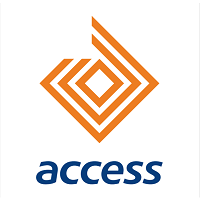brand
Unity Bank Continues to Operating on Improved Key Performance Indicators

 In its FYE 2020 audited results releases recently, Unity Bank posted reports that shows stronger and growing fundamentals across major indices and key performance indicators that alludes to healthy growth of its balance sheet on a consistent basis. The top-line performance was driven by improvement in net interest income margins which reported 16% growth. The Bank recorded Assets Growth of 67.90% to N492.02 Billion, and Gross Earnings of N42.71 Billion within the year under review. The Bank substantially grew its customers’ deposit portfolio to N356.62 billion, up from N257.69 billion in the corresponding period of 2019, representing a 38.4% growth. This affirms positive market uptake of the Bank’s product offerings, as well as the lender’s growing customer base to its recent aggressive push with agile customer-centric products, which has played a role in deepening financial services penetration especially to a wider world, underserved spectrum of the retail market.Other major highlights of the audited financial statement relate to growth in its net operating income which rose to N25.46 billion from N23.21 billion in the corresponding period of 2019, representing a 9.71% increase. This is even as the net interest income recorded a significant jump, as it rose by 7.60% to N17.75 billion from N16.49 billion in the corresponding period of 2019. Earnings per Share closed at 17.85 Kobo. Similarly, in the Bank’s unaudited Q1, 2021 results submitted to the Nigerian Stock Exchange on Friday, the retail lender’s Profit Before Tax grew by 43% to N784.3 million from N550.1 million recorded in the corresponding period of 2020.The Profit After Tax for the period which also grew by 43% stood at N721.5 million compared to the N506, 07 million recorded in Q1 2020.On the liquidity position, the Q1 2021 results recorded cash and balances with the Central Bank well above the threshold 27.5%, having posted a 326% increase to close at N111.2bn from 26.1bn in the corresponding period of 2020. This is even as the lender also grew customer deposits by 13% to N348.3 billion from N308.8 billion in the period under review, a strong indication of the growing popularity and acceptance of the Bank’s array of innovating products and services.As an outcome of increased focus on supporting local enterprises and industry, the asset column also showed a significant growth in loan portfolio of 76% as net loans and advances to customers increased to N223.2 billion from N126.6 billion in the corresponding period, with total assets for the period growing by 42% to close at N521. billion from N366.8 billion in the corresponding period of 2020.The Bank has been pushing transformation initiatives spearheaded by the new management. This is a strategic approach targeted at the youth market through several products such as the launch of omni-channel internet and life-style mobile application which is flagship UniFi, Multi-lingual USSD *777999# service which enables young people to bank, shop and interact. There is also the Corpreneurship Challenge, which is a pioneer initiative by the Bank targeted to drive entrepreneurship capacity of young graduates completing their national youth service.Unity Bank continues to build a valuable franchise in its agribusiness, the Bank has demonstrated an unwavering commitment to supporting agricultural businesses over the past five years. The Bank has broken new grounds by partnering with the Central Bank of Nigeria and the Rice Farmers Association of Nigeria to deliver the long-held objective of ensuring self-sustainability in rice production pushed by the Federal Government of Nigeria. This partnership has led to a reasonably high level of output in rice production, placing Nigeria on a path to self-sufficiency in rice production. The partnership with the rice farmers have so far generated no fewer than 300,000 direct and indirect jobs and led to the cultivation of over 1 million hectares of farmland, across 26 States, producing no fewer than 2 million metric tonnes of rice this wet season alone.The Bank is consolidating on the gains from its core business areas and niche in the agribusiness sector. The Bank has solidly financed over one million farmers over the past three years. These farmers cut across several primary crop production such as rice, maize, cotton, wheat, sorghum, etc coupled with their rich value chains, and it hopes to continue to expand on this as its play its role in driving the country’s quest for self-sufficiency in food production. The Bank is consolidating on the gains from its core business areas and niche in the agribusiness sector. The Bank has solidly financed over one million farmers over the past three years. These farmers cut across several primary crop production such as rice, maize, cotton, wheat, sorghum, etc coupled with their rich value chains, and it hopes to continue to expand on this as its play its role in driving the country’s quest for self-sufficiency in food production.The Executive Management with full cooperation of the Board sold its NPL, a move that reflect the bold initiative of the new team to settle the issue of legacy loans once and for all and refocus the bank to leverage resources that will bring about top line performance by optimizing our technology, digital platforms and focusing our people on targeted opportunities across regions to deliver operational efficiency and improved customer service. With the de-risking of the balance sheet, the Bank has turned the corner, currently posting near zero percent NPL ratio along with the enhanced credit management process. Market analysts believe that the thorough diagnostics of the Bank as well as the bold, firm and strategic action by the new Board & Management to eliminate the drag on the Bank in the form of huge legacy non-performing loans remain a feat that will set the Bank up on the path of strong and sustainable growth and profitability. The Bank has continued to hone initiatives aimed at getting rid of inefficient operating structure which manifested in excessive costs, poor branch spread and inadequate application of technology amongst others. Despite the capital base, the efforts put in to revamp the institution has resulted in a leaner, smarter and dynamic Bank with a healthy Balance Sheet. Furthermore, with the progress being made on the ongoing capital raising, the Bank is firmly on course to achieving sustainable growth and sound performance.On capital raising, although the global pandemic delayed the capital raising process, the exercise is well on course. There is a clear process around capital injection which would be made public in due course.
In its FYE 2020 audited results releases recently, Unity Bank posted reports that shows stronger and growing fundamentals across major indices and key performance indicators that alludes to healthy growth of its balance sheet on a consistent basis. The top-line performance was driven by improvement in net interest income margins which reported 16% growth. The Bank recorded Assets Growth of 67.90% to N492.02 Billion, and Gross Earnings of N42.71 Billion within the year under review. The Bank substantially grew its customers’ deposit portfolio to N356.62 billion, up from N257.69 billion in the corresponding period of 2019, representing a 38.4% growth. This affirms positive market uptake of the Bank’s product offerings, as well as the lender’s growing customer base to its recent aggressive push with agile customer-centric products, which has played a role in deepening financial services penetration especially to a wider world, underserved spectrum of the retail market.Other major highlights of the audited financial statement relate to growth in its net operating income which rose to N25.46 billion from N23.21 billion in the corresponding period of 2019, representing a 9.71% increase. This is even as the net interest income recorded a significant jump, as it rose by 7.60% to N17.75 billion from N16.49 billion in the corresponding period of 2019. Earnings per Share closed at 17.85 Kobo. Similarly, in the Bank’s unaudited Q1, 2021 results submitted to the Nigerian Stock Exchange on Friday, the retail lender’s Profit Before Tax grew by 43% to N784.3 million from N550.1 million recorded in the corresponding period of 2020.The Profit After Tax for the period which also grew by 43% stood at N721.5 million compared to the N506, 07 million recorded in Q1 2020.On the liquidity position, the Q1 2021 results recorded cash and balances with the Central Bank well above the threshold 27.5%, having posted a 326% increase to close at N111.2bn from 26.1bn in the corresponding period of 2020. This is even as the lender also grew customer deposits by 13% to N348.3 billion from N308.8 billion in the period under review, a strong indication of the growing popularity and acceptance of the Bank’s array of innovating products and services.As an outcome of increased focus on supporting local enterprises and industry, the asset column also showed a significant growth in loan portfolio of 76% as net loans and advances to customers increased to N223.2 billion from N126.6 billion in the corresponding period, with total assets for the period growing by 42% to close at N521. billion from N366.8 billion in the corresponding period of 2020.The Bank has been pushing transformation initiatives spearheaded by the new management. This is a strategic approach targeted at the youth market through several products such as the launch of omni-channel internet and life-style mobile application which is flagship UniFi, Multi-lingual USSD *777999# service which enables young people to bank, shop and interact. There is also the Corpreneurship Challenge, which is a pioneer initiative by the Bank targeted to drive entrepreneurship capacity of young graduates completing their national youth service.Unity Bank continues to build a valuable franchise in its agribusiness, the Bank has demonstrated an unwavering commitment to supporting agricultural businesses over the past five years. The Bank has broken new grounds by partnering with the Central Bank of Nigeria and the Rice Farmers Association of Nigeria to deliver the long-held objective of ensuring self-sustainability in rice production pushed by the Federal Government of Nigeria. This partnership has led to a reasonably high level of output in rice production, placing Nigeria on a path to self-sufficiency in rice production. The partnership with the rice farmers have so far generated no fewer than 300,000 direct and indirect jobs and led to the cultivation of over 1 million hectares of farmland, across 26 States, producing no fewer than 2 million metric tonnes of rice this wet season alone.The Bank is consolidating on the gains from its core business areas and niche in the agribusiness sector. The Bank has solidly financed over one million farmers over the past three years. These farmers cut across several primary crop production such as rice, maize, cotton, wheat, sorghum, etc coupled with their rich value chains, and it hopes to continue to expand on this as its play its role in driving the country’s quest for self-sufficiency in food production. The Bank is consolidating on the gains from its core business areas and niche in the agribusiness sector. The Bank has solidly financed over one million farmers over the past three years. These farmers cut across several primary crop production such as rice, maize, cotton, wheat, sorghum, etc coupled with their rich value chains, and it hopes to continue to expand on this as its play its role in driving the country’s quest for self-sufficiency in food production.The Executive Management with full cooperation of the Board sold its NPL, a move that reflect the bold initiative of the new team to settle the issue of legacy loans once and for all and refocus the bank to leverage resources that will bring about top line performance by optimizing our technology, digital platforms and focusing our people on targeted opportunities across regions to deliver operational efficiency and improved customer service. With the de-risking of the balance sheet, the Bank has turned the corner, currently posting near zero percent NPL ratio along with the enhanced credit management process. Market analysts believe that the thorough diagnostics of the Bank as well as the bold, firm and strategic action by the new Board & Management to eliminate the drag on the Bank in the form of huge legacy non-performing loans remain a feat that will set the Bank up on the path of strong and sustainable growth and profitability. The Bank has continued to hone initiatives aimed at getting rid of inefficient operating structure which manifested in excessive costs, poor branch spread and inadequate application of technology amongst others. Despite the capital base, the efforts put in to revamp the institution has resulted in a leaner, smarter and dynamic Bank with a healthy Balance Sheet. Furthermore, with the progress being made on the ongoing capital raising, the Bank is firmly on course to achieving sustainable growth and sound performance.On capital raising, although the global pandemic delayed the capital raising process, the exercise is well on course. There is a clear process around capital injection which would be made public in due course.
brand
Body of Bank CEOs Delivers Critical Relief to Flood Victims in Niger State, Pledges Continued Support

 Pix 1 L-R: Registrar & Chief Executive of the Chartered Institute of Bankers of Nigeria (CIBN) Akin Morakinyo; Managing Director and Chief Executive Officer of Keystone Bank Limited, Mr. Hassan Imam; Group Managing Director/Chief Executive, Zenith Bank, Dame (Dr.) Adaora Umeoji; The Executive Governor of Niger State, His Excellency, Governor Mohammed Umaru Bago; Chairman, Body of Bank CEOs and Group Managing Director/CEO, United Bank for Africa (UBA) Plc, Oliver Alawuba; Managing Director Taj Bank Mr. Hamid Joda; and Secretary to the Government of Niger State (SSG), Alhaji Abubakar Usman during the donation of relief materials from the Body of Bank CEOs in Nigeria, aimed at supporting victims of the recent devastating floods in Mokwa Local Government Area held at the Niger State House in Abuja at the weekend.
Pix 1 L-R: Registrar & Chief Executive of the Chartered Institute of Bankers of Nigeria (CIBN) Akin Morakinyo; Managing Director and Chief Executive Officer of Keystone Bank Limited, Mr. Hassan Imam; Group Managing Director/Chief Executive, Zenith Bank, Dame (Dr.) Adaora Umeoji; The Executive Governor of Niger State, His Excellency, Governor Mohammed Umaru Bago; Chairman, Body of Bank CEOs and Group Managing Director/CEO, United Bank for Africa (UBA) Plc, Oliver Alawuba; Managing Director Taj Bank Mr. Hamid Joda; and Secretary to the Government of Niger State (SSG), Alhaji Abubakar Usman during the donation of relief materials from the Body of Bank CEOs in Nigeria, aimed at supporting victims of the recent devastating floods in Mokwa Local Government Area held at the Niger State House in Abuja at the weekend.
 The Executive Governor of Niger State, His Excellency, Governor Mohammed Umaru Bago; Chairman, Body of Bank CEOs and Group Managing Director/CEO, United Bank for Africa (UBA) Plc, Oliver Alawuba during the donation of relief materials from the Body of Bank CEOs in Nigeria, aimed at supporting victims of the recent devastating floods in Mokwa Local Government Area held at the Niger State House in Abuja at the weekend
The Executive Governor of Niger State, His Excellency, Governor Mohammed Umaru Bago; Chairman, Body of Bank CEOs and Group Managing Director/CEO, United Bank for Africa (UBA) Plc, Oliver Alawuba during the donation of relief materials from the Body of Bank CEOs in Nigeria, aimed at supporting victims of the recent devastating floods in Mokwa Local Government Area held at the Niger State House in Abuja at the weekend
Pix 3: L-R: Managing Director and Chief Executive Officer of Keystone Bank Limited, Mr. Hassan Imam; Group Managing Director/Chief Executive, Zenith Bank, Dame (Dr.) Adaora Umeoji; The Executive Governor of Niger State, His Excellency, Governor Mohammed Umaru Bago; Chairman, Body of Bank CEOs and Group Managing Director/CEO, United Bank for Africa (UBA) Plc, Oliver Alawuba; and Managing Director Taj Bank Mr. Hamid Joda, during the donation of relief materials from the Body of Bank CEOs in Nigeria, aimed at supporting victims of the recent devastating floods in Mokwa Local Government Area held at the Niger State House in Abuja at the weekend.
In a heartwarming display of corporate social responsibility and solidarity, a consortium of Nigerian Bank CEOs, has pledged significant support to alleviate the suffering of flood victims in Niger State
The Executive Governor of Niger State, His Excellency, Governor Mohammed Umaru Bago on Saturday in Abuja received relief materials from the Body of Bank CEOs led by its Chairman, Mr Oliver Alawuba.
The gesture is aimed at supporting victims of the recent devastating floods in Mokwa Local Government Area of the state.
Oliver Alawuba who is also the Group Managing Director/CEO of United Bank for Africa(UBA), led the delegation to the Niger State Government house Abuja, where they presented essential relief items, including bags of rice, beverages, vegetable oil, and mattresses, valued at millions of naira.
The devastating floods, which have affected thousands of families in the region, have prompted the banking community to come together in a show of empathy and support to those displaced and affected by the disaster.
In his address, Alawuba expressed the banking industry’s deep sympathy for the affected communities and reaffirmed their dedication to sustainable support while pointing out that the gesture underscores the banking sector’s commitment to corporate social responsibility and humanitarian intervention especially in times of crisis.
He said, “Today, we stand with the people of Niger State in their time of need. We want you to know that we feel your pain and we give you our firm resolve to assist in rebuilding lives. This donation is just the beginning; we pledge continued collaboration with the Niger State Government to ensure long-term recovery and resilience.”
Other top CEOs and executives at the presentation included by the Group Managing Director/Chief Executive of Zenith Bank, Dame (Dr.) Adaora Umeoji, the Registrar and Chief Executive of the Chartered Institute of Bankers of Nigeria (CIBN), Mr. Akin Morakinyo, Managing Director and Chief Executive Officer of Keystone Bank Limited, Mr. Hassan Imam; Managing Director Taj Bank Mr. Hamid Joda; Secretary to the Government of Niger State (SSG), Alhaji Abubakar Usman senior government officials, banking executives, and media representatives, marking a significant step in public-private collaboration for humanitarian relief.
Governor Bago, who received the relief materials on behalf of the state, commending the banking sector for its timely intervention.
“This gesture reinforces the critical role of private-sector partnerships in disaster response,” Governor Bago stated. “We are grateful for this support and look forward to deeper collaboration in safeguarding our communities against future challenges. On behalf of the good people of Niger State, particularly the affected families in Mokwa, I extend our sincerest thanks for this timely and compassionate intervention,” Bago stated.
“The recent floods in the state brought immense hardship to the people, displacing families, destroying livelihoods, and disrupting communities and the banking sector, under the leadership of Alawuba and his esteemed colleagues, has demonstrated that beyond financial stewardship, they are true partners in national development and humanitarian service.
This donation is not just about the physical items; it is a symbol of hope, resilience, and the unwavering support of Nigeria’s financial institutions in times of need. It reassures our people that they are not forgotten, the governor stated.
…
brand
FirstBank Wins Gold for Best Corporate University in Social & Climate Change Impact

 FirstBank, the West Africa premier bank and financial inclusion services provider, is thrilled to announce that its Corporate University, FirstAcademy, has been awarded the Gold Award for Best Corporate University in Social & Climate Change at the Global Council of Corporate Universities (GlobalCCU) Awards 2025.
FirstBank, the West Africa premier bank and financial inclusion services provider, is thrilled to announce that its Corporate University, FirstAcademy, has been awarded the Gold Award for Best Corporate University in Social & Climate Change at the Global Council of Corporate Universities (GlobalCCU) Awards 2025.
This highly acclaimed award recognises FirstAcademy’s outstanding commitment to driving social and climate change learning initiatives, aligning its learning and development programs with internal stakeholder needs, and promoting Corporate Social Responsibility (CSR).
The GlobalCCU Awards is a prestigious, biannual recognition of excellence in corporate universities, setting the highest standard for the industry. With a rich 12-year history dating back to its inaugural ceremony in Paris in 2013, the awards have consistently honoured outstanding Corporate Universities, learning and development structures worldwide. The GlobalCCU Awards celebrate institutions that create remarkable value for people, businesses, society and the planet.
FirstBank’s FirstAcademy exemplifies this mission by earning the Gold Award for Best Corporate University in Social & Climate Change at the 2025 ceremony in Paris, France. This distinction reflects FirstAcademy’s dedication to fostering sustainability and environmental responsibility; developing impactful learning initiatives that transcends traditional corporate training, with broader societal goals; integrating climate action into its portfolio and operations; expanding climate finance offerings and developing a climate action capacity building training program.
FirstAcademy was inaugurated in 2012 as the Bank’s designated corporate academy designed to provide structured talent development, knowledge management and culture change initiatives. One major objective of the academy is to equip staff with the requisite knowledge and skills required to deliver on the Bank’s strategic aspirations and to thrive in an ever-evolving work environment while contributing to social and environmental responsibility.
According to the Founder and Chairman of the GlobalCCU Awards, Annick Renaud-Coulon, “FirstAcademy is an outstanding Corporate University that is clearly the Best Corporate University globally for driving social and climate change learning initiatives.”
Congratulating FirstAcademy, the Founder and Chairman of the GlobalCCU Awards, Annick Renaud-Coulon, said “FirstAcademy is a very mature Corporate University which demonstrates a strong alignment with FirstBank’s vision of responsible banking and sustainable development, with clear support from senior leadership and a governance model that strategically connects learning to business priorities. Congratulations to FirstAcademy for setting a visionary standard in advancing meaningful social and climate change impact through learning and inclusive capacity building!”
In the words of Olayinka Ijabiyi, the Acting Group Head, Marketing and Corporate Communications, FirstBank “We are delighted to receive this international recognition for our efforts in promoting social responsibility and climate action. This award serves as a testament to our belief that businesses can be a force for good, driving transformation that extends beyond profit to create sustainable and equitable futures for all. FirstAcademy’s programs have not only enhanced employee skills but also contributed to the well-being of society and the environment.”
As FirstBank’s FirstAcademy continues to bridge the gap between corporate initiatives and community needs, it sets a leading example for corporate universities around the globe, inspiring others to follow suit in the quest for meaningful change.
brand
Access Holdings Topsin Asset Qualityin Proshare’s 2025Tier1 Banking Rankings


Access Holdings PLC has been ranked the Tier 1 bank
-
www.accessbankplc.comAccessHoldingsdemonstratedstrongfundamentalsacrossalltheseparameters.Itclosed Full Year 2024 with total assets of 41.5 trillion and a loan book of 13.1 trillion.₦ ₦The Group’scapitaladequacyratiostoodat20.46percent,whileassetgrowthfortheperiodreached55.49percent.Itscostofriskwasheldat1.25percent,netinterestmargin recorded at 6.80 percent, and earnings growth was an impressive 88.05 percent,all indicators of a business built on financial soundness and execution excellence.Speaking at the launch event, Olufemi Awoyemi, Chairman of Proshare, described thereport as a vital mirror into the shifting dynamics of Nigeria’s financial services industry.“AccessHoldingshasprovenitselfasastrong,adaptiveinstitution.Itsrobustcapitalbase, successful fundraising, and continental expansion efforts show a group that is notonlygrowingbutevolving.Asrecapitalisationreshapesthebankinglandscape,institutions like Access Holdings will continue to define the future of finance in Africa.”He further remarked on the nuance behind E
-

 news5 years ago
news5 years agoUPDATE: #ENDSARS: CCTV footage of Lekki shootings intact – Says Sanwo – Olu
-

 news2 years ago
news2 years agoEnvironmental Pollutions : OGONI COMMUNITY CRIES OUT, THREATENS TO SHUT DOWN FIRSTBANK,SHELL OIL COMPANY OPERATIONS FOR NOT PAYING COURT AWARD
-

 lifestyle5 years ago
lifestyle5 years agoFormer Miss World: Mixed reactions trail Agbani Darego’s looks
-

 health4 years ago
health4 years agoChairman Agege LG, Ganiyu Egunjobi Receives Covid-19 Vaccines
-

 politics2 months ago
politics2 months agoBreaking : Oborevwori , Okowa others dumps PDP, defects to APC
-

 lifestyle4 years ago
lifestyle4 years agoObateru: Celebrating a Quintessential PR Man at 60
-

 news1 month ago
news1 month agoBREAKING: Tinubu swears in new NNPCL Board
-

 health5 years ago
health5 years agoUPDATE : Nigeria Records 790 new cases of COVID-19


